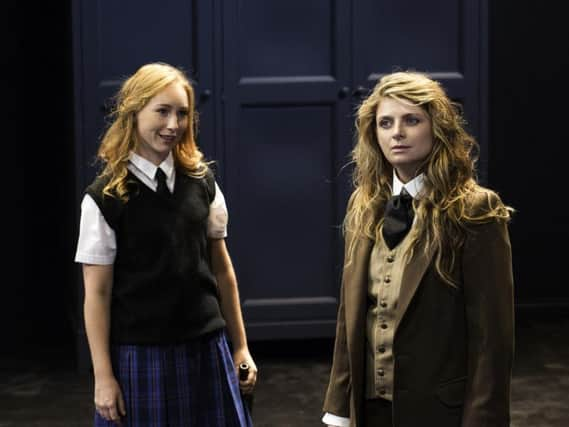Review: Picnic at Hanging Rock


ROYAL LYCEUM, Grindlay Street
* * *
Based on Joan Lindsay’s 1967 novel, later adapted for cinema by Peter Weir, Picnic at Hanging Rock is a mystery without resolution and a tale that has spooked generations of Australians. On Valentine’s Day in 1900, a school party picnicing at Hanging Rock is left traumatised by the disappearance of three girls and their teacher.
Could they really have just vanished into thin air?
Against a black set, denuded of detail, director Matthew Lutton opens his reworking of the myth with five uniformed school girls appearing from the darkness as thunder rolls.
Advertisement
Hide AdAdvertisement
Hide AdThey recite a description of their homeland, a place they say of gateways and portals, openings to other worlds... and a doorway to hell.
Speaking in turn, they conjure up geological marvels and mysterious forces as they begin to recall the tragic day.
If it’s perhaps a tad too stylised, it’s also an effective way of short cutting to the action.
Told in chapters, titles disclosed on an incongruous monitor suspended above the stage, the story unfolds briskly, the cast assuming the personalities that people the tale.
Advertisement
Hide AdAdvertisement
Hide AdIt’s a technique that, when it works, works brilliantly. Sadly, it doesn’t always work well enough and unintentional moments of melodrama emerge.
That it’s told in one 85 minute sitting with no interval doesn’t enhance the experience.
And as the on stage energy ebbs and flows, there’s quickly a feeling that Tom Wright’s script would be more suited to a radio drama.
More than once, a monotonous monologue demands attention but fails to grasp it due to a delivery that lacks pace, tension or threat.
Advertisement
Hide AdAdvertisement
Hide AdConsequently, the production never quite captures the horror that lies at its heart - although there is one truly spine-chilling moment.
Performed by the original Australian cast, Harriet Gordon-Anderson, Arielle Gray, Amber McMahon, Elizabeth Nabben, Nikki Shiels, performances are uneven.
Amber McMahon’s is the standout as she effortlessly moves between characters and genders.
Others over-act, with one scene direct from the Prisoner Cell Block H school of acting.
Advertisement
Hide AdAdvertisement
Hide AdOverall, however, it’s the stripped-back nature of the production, both physical and emotional, that struggles to hold the attention and, for many, the real mystery will be how such an unexceptional piece of theatre found its way onto the Lyceum’s stage.
Run ends 28 January